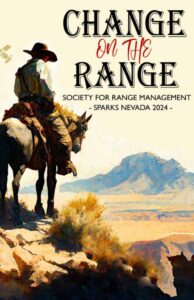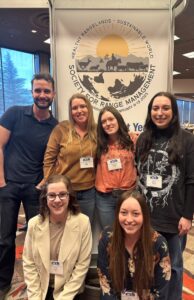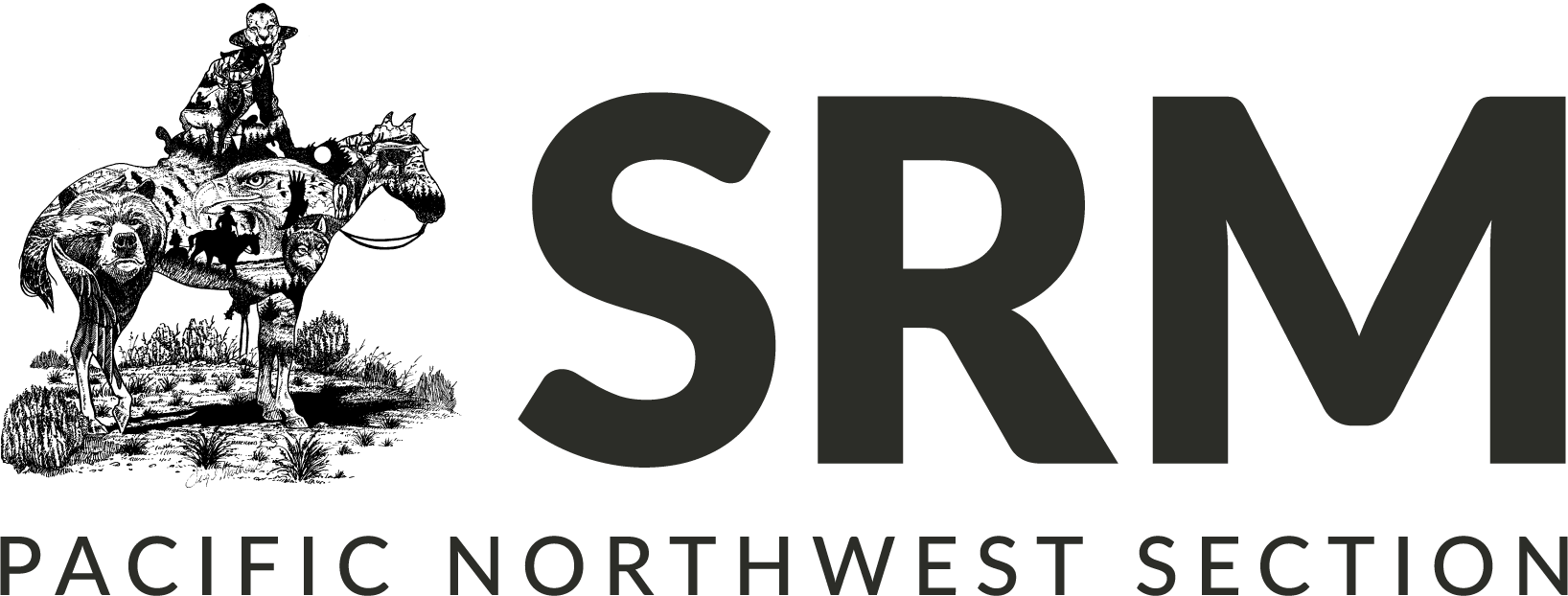Summary
Reflections from TRU students who attended the SRM meeting in Sparks, NV.

It came as a relief when our plane finally touched down in Reno, Nevada after the flurry of planning and preparation for the 2023 Society of Range Management (SRM) Annual Meeting. Our crew of Thompson Rivers University students, consisting of Jennifer Ellis, Maria Bayliff, Madison Hughes, Meghan Allan, Morgan Robinson, and Adam Soames, spent weeks preparing posters, organizing flights, and booking hotel rooms under the guidance of volunteer SRM event organizer, and TRU professor Dr. Wendy Gardner. Though the journey took hours, the rolling grasslands, sagebrush hills, and snowy peaks of Nevada were remarkably similar to those of our home in Kamloops BC – a gentle reminder that nature doesn’t always conform to the rigid boundaries we build in our minds. We would soon find that the similarity stretched beyond the landscape and encompassed the people too. Though the thousands of attendees came from a wide range of backgrounds and distant towns, they all seemed to share a common passion – protecting and inspiring positive change on the range.
While “Change on the Range” was the conference tagline, the topic of communication seemed to dominate many of the discussions we encountered. It seems similarity in passion does not always mean it is expressed effectively, and many indicated that navigating conversations around range management can be challenging. The best instances of these discussions came from the morning plenary sessions. There, Tip Hudson stimulated thoughtful discussions with a variety of speakers on topics of range management. It was inspiring to see that whether they were scientists, ranchers, or stakeholders with a passion for the industry, they could find common ground, and engage in healthy and productive discussion. It sparked hope that despite the deepening divides experienced in the ranching industry and beyond, there still exist those who are driven and eager to collaborate.
Throughout the meeting we attended dozens of oral sessions on topics ranging from interactions between beavers and buffalo, to invasive species and fire management. In many areas, the systems and research in the United States seem to be steps ahead of Canada. In some cases, it was humbling and eye opening to see how much we could improve, and further enforced the vital importance and value of collaboration. This was reiterated by the field tours. On the Markleeville Ecology Tour, we learned about drone use for vegetation surveys and analysis, and virtual fencing technology for cattle management. We also saw incredible instances of collaborative efforts in wildfire restoration across groups that do not traditionally get along. In the Frey Ranch Tour, Joe Frey taught us the value of regenerative agriculture techniques that reduced or eliminated the need for chemical herbicides and fertilizers. He also demonstrated how he was successful in using intensive grazing in his fields to improve biodiversity. While there, Frey Ranch Distillery gave us a tour of their operation where they grow 100% of their own grain to make their famous whiskey. We can attest to the quality and effectiveness of their product.
The flow of knowledge wasn’t unidirectional, however, as a number of our group presented posters on their own research during the student poster sessions. Jennifer Ellis shared her directed studies research exploring the impacts of weight, volume, and collection site on knotweed rhizome viability, working off research conducted by master’s student Adam Soames who examined methods of sterilizing soils contaminated by knotweed propagules with heat. Madison Hughes discussed her fuel management pilot study for her honors research, and Morgan Robinson shared her methods investigating the control of knapweed in the Lac Du Bois area of British Columbia. Each inspired lively discussion with participants as they browsed the dense collection of topics. Though they stood for over an hour, the time seemed to fly by.
Our gained learnings will tumble through our minds as we leave the grasslands of Nevada behind and return to our respective niches. We have been made richer by this experience; our perspectives broadened by the understandings shared by many brilliant and insightful people. We look forward to the prospect of attending the conference again next year and hope to share our ensuing successes in inspiring change on the range.

